Q&A: What is Burnout & How Do I Prevent It

Q: What is burnout, and how do I prevent and/or manage it?
A: Burnout is a psychological state of physical and emotional exhaustion specifically related to occupational stress. Besides being characterized by feelings of energy depletion or exhaustion, it includes increased negative or cynical feelings towards one’s job and reduced professional efficacy. The term “burnout” has been recognized by the World Health Organization and is now a legitimate medical syndrome.
A Gallup survey found 76% of employees have experienced some form of burnout, and those affected are 63% more likely to take sick days, 23% more likely to visit an emergency room, and 250% more likely to look for a new job!
Burnout is caused by a long list of things, including; a lack of social support at work (especially for remote workers and even more so during periods of isolation), unclear or undefined job expectations, too much digital inundation and interruption, a corporate culture where working evenings and weekends is rewarded, and underlying all else, work-life imbalance, or “burning the candle at both ends”.
Our society tends to think of burnout as an individual problem, solvable by yoga, breathing practices, learning to say “no”, or taking self-resilience workshops. However, more research supported by the WHO is showing that it’s also an employer’s responsibility to build anti-burnout strategies. Employees still need to make intelligent decisions; eating healthfully and regularly, moving their bodies daily, exercising appropriately, sleeping deeply for 7-9 hrs, incorporating stress-reducing activities, and maintaining satisfying relationships for support—but it’s becoming clear there is a cyclical relationship between the work environment and personal health choices. When a work environment nurtures an employee’s wellness, that employee will further invest in self-care practices that rejuvenate and charge them back up for another day of work. The opposite also happens, where a work environment is so depleting that an employee is left with zero energy at the end of the day and self-care practices fall to the wayside—instead of engaging in energy-producing, healthy activities, burnt-out employees usually resort to energy-depleting activities like drinking a glass of wine (or two or three), eating unhealthy food, and sitting on the couch watching TV (after a full day of sitting for their job).
If you find yourself feeling depleted, physically, and emotionally, at the end of your workday, you may be burning out.
How To Prevent & Manage Burnout
Try this mix of personal and managerial strategies to counter burnout for yourself and your employees:
Focus on efficacy, not hours
According to Parkinson’s law, “work expands to fill the time available for its completion”. Unfortunately, time worked does not have a great correlation with productivity. Encourage yourself and your staff to redefine performance as something based on results, not hours worked. Consider some of these questions during the workday to facilitate this shift:
— Is this task still important or has the situation changed?
— Am I really the only person who can do this?
— Is this the most important thing right now, or am I doing it to avoid something else?
— If this is the only thing I accomplish today, will I be satisfied with my work when I leave?
Prioritize tasks
Avoid the misnomer of multi-tasking by concentrating on one prioritized task at a time. Jumping from one task to another is not an efficient use of your energy and has been proven to increase the completion time for both tasks by 25%.
Limit distractions
Avoid multi-platform and device interruptions when focusing on a project or task. It takes significant time and energy to return to a concentrated state.
Take breaks
Take regular breaks to rejuvenate the mind and move the body before, during, and after work. This is a necessary investment in your overall productivity.
Minimize communication
The average manager is spending 8 hours per week on email communication (avg 200 emails per day) and another 1 to 2 days a week in meetings. Try to encourage only essential emails and meetings from being sent and scheduled.
Empower your team
Empower your employees to set their own schedules and make decisions. Too much deliberation around meetings and back-and-forth decision making steal productive time from individuals.
Support your tribe
Offer positive communication and rewards, and go to bat for them when deadlines and workloads are unreasonable.
Preventing burnout is both a corporate cultural problem and a personal energy management problem. It’s important to not feel shame if we are suffering from burnout, but instead become curious about our relationship with work and examine our efficacy vs hours work ratio, our commitment to establishing boundaries, and the culture our company promotes…and then initiate change.
What is Mountain Trek?
Mountain Trek is the health reset you’ve been looking for. Our award-winning hiking-based health retreat, immersed in the lush nature of British Columbia, will help you unplug, recharge, and roll back years of stress, anxiety, and unhealthy habits. To learn more about the retreat, and how we can help you reset your health, please email us at info@mountaintrek.com or reach out below:










